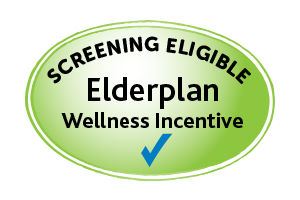Contact Us
If you are an Elderplan Member and have questions or concerns, please contact Elderplan Member Services at 1-800-353-3765 [TTY: 711], 8 a.m. to 8 p.m., 7 days a week or email us at [email protected]

Colorectal cancer is a disease in which cells in the colon or rectum grow out of control. It affects men and women at an equally frequent rate and your risk of getting colorectal cancer increases as you get older. Your risk may also increase after having: inflammatory bowel disease (such as Crohn’s disease or ulcerative colitis); a personal or family history of colorectal cancer or colorectal polyps; a genetic syndrome such as familial adenomatous polyposis (FAP) or hereditary non-polyposis colorectal cancer (Lynch syndrome).
The good news is there is a lot you can do to protect yourself from this disease, including:
The most effective way to reduce your risk of colorectal cancer is to get screened routinely. Almost all colorectal cancers begin as precancerous polyps, which typically don’t cause symptoms and can take years to become cancer. Colorectal cancer screenings can find polyps so they can be removed, preventing cancer from developing. The U.S. Preventive Services Task Force recommends that adults begin screening at age 45 and continue screenings at regular intervals until age 75. Adults ages 76 to 85 should talk to their doctor about whether to continue screening and how often.
Several colorectal cancer screenings are available, including:
It’s best to talk to your doctor about which screening is right for you.

This screening is part of our Elderplan Wellness Incentive program. Read more to see if you are eligible to participate!
At Elderplan, we value the health and wellness of our members. Knowing the basics about specific health conditions may help you be more aware of the risk factors to look for. As an Elderplan member, many screenings, like colorectal screening, may be covered at no cost to you.
If you are an Elderplan Member and need help, contact Member Services. We can assist in scheduling your screening or recommend other care options through one of our programs.
If you are not a Member, please explore our health plan options to see if there is a plan that may suit your needs.
Get tips and advice on practicing healthy habits and attaining better physical and mental health so that instead of just surviving, you’re thriving.
All Resources